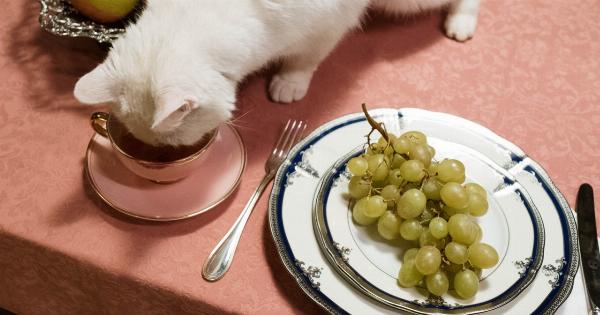As cat lovers, we want our feline companions to live long, healthy lives. Just like humans, cats can suffer from dental problems, including gum disease and tooth decay.
Maintaining good dental health is essential for our furry friends, as it can prevent pain and discomfort, as well as more serious health issues. In this guide, we will explore the importance of feline dental health and discuss the best foods to support healthy teeth and gums in cats.
The Significance of Dental Health for Cats
Contrary to popular belief, dental health is not just about maintaining fresh breath in cats. It plays a crucial role in their overall well-being.
Untreated dental problems can lead to pain, difficulty eating, and systemic infections that can affect other organs such as the kidneys and heart. Regular dental care, including professional cleanings and a proper diet, can help prevent these issues.
Choosing the Right Food for Dental Health
When it comes to promoting good dental health in cats, it is essential to select the right food. While some cat foods are specifically formulated to support dental health, others can inadvertently contribute to dental problems.
Here are some guidelines to consider when selecting cat food for dental health:.
1. High-Quality Dry Food
Dry cat food is generally better for dental health compared to wet food. The crunchy kibble texture helps to scrape away plaque and tartar buildup on the teeth. Look for high-quality dry cat foods that are formulated to promote dental health.
These foods are often designed with larger kibble sizes and specific ingredients that can improve oral hygiene.
2. Dental Diet Formulas
Many pet food brands offer dental diet formulas that are designed to support oral health in cats. These diets are typically formulated with a specific balance of nutrients, including ingredients that help reduce tartar and plaque accumulation.
Dental diet formulas may also contain additional fiber or additives that promote chewing and saliva production, further supporting dental health.
3. Raw Meaty Bones
Raw meaty bones, such as chicken wings or turkey necks, can be a beneficial addition to a cat’s dental health routine. Gnawing on raw bones helps clean the teeth and remove plaque.
However, it is important to consult with a veterinarian before introducing raw bones to your cat’s diet to ensure they are appropriate and safe for your individual cat.
4. Dental Treats
In addition to regular meals, dental treats can be a valuable tool for maintaining your cat’s dental health. Look for treats that are specifically designed to promote dental hygiene.
These treats often have a crunchy texture and may contain ingredients like enzymes or additives that help control tartar and plaque. Always feed dental treats in moderation to avoid excessive calorie intake.
Foods to Avoid
While some foods can support dental health, others can contribute to dental problems in cats. It is important to avoid the following:.
1. Soft Canned Food
Soft canned food tends to stick to the teeth and can lead to plaque and tartar buildup. If your cat primarily consumes wet food, consider incorporating some dry food or dental treats into their diet to help maintain healthier teeth.
2. Sugary Treats
Treats high in sugar, such as candies or cookies, can promote tooth decay in cats, just like in humans. Avoid feeding your cat any sugary treats, as they can contribute to dental issues and overall health problems.
3. Hard Foods that May Cause Tooth Fractures
While crunchy dry food is beneficial, some hard treats or bones can be too hard and potentially cause tooth fractures or other dental injuries. Always choose dental treats or bones that are appropriate for your cat’s size and chewing abilities.
Maintaining Good Oral Hygiene Practices
In addition to a proper diet, there are other steps you can take to ensure your cat’s dental health remains in top shape:.
1. Regular Teeth Brushing
Brushing your cat’s teeth is the gold standard for maintaining good oral hygiene. Use a cat-specific toothbrush and toothpaste to gently brush your cat’s teeth at least once a day.
Start slowly and make it a positive experience for your cat by offering treats or praise.
2. Dental Wipes or Gels
If your cat refuses to tolerate toothbrushing, dental wipes or gels can be an alternative. These products can help remove plaque and freshen breath, but they are not as effective as brushing.
Consult your veterinarian for the most suitable dental care products for your cat.
3. Regular Vet Check-ups
Regular veterinary check-ups are crucial for monitoring your cat’s dental health. Your veterinarian can perform dental examinations, professional cleanings, and address any emerging dental issues promptly.
By understanding the importance of dental health in cats and providing them with the right food and dental care, you can play a significant role in ensuring they have purr-fect teeth and gums throughout their lives.
Take the time to establish good dental hygiene practices and consult your veterinarian for personalized advice.






























